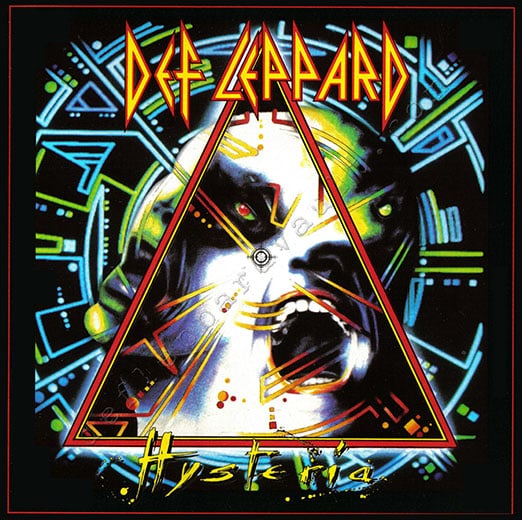The gateway to a lifelong love of heavy metal
The first aIbum I ever bought was the 1987 rock classic by Def Leppard, Hysteria. Eight years old, with a £5 birthday voucher to spend in Woolworth’s, I knew nothing about Def Leppard at the time. But the album was on display in the Top Ten rack and there was something transgressive about the jagged font and sci-fi/terror artwork on the cover that appealed to me. I ended up playing and rewinding that cassette thousands of times, until it wore out completely. Def Leppard’s fourth album, Hysteria was a huge global success, charting at number one in both the UK and US and selling over twenty-five million copies to date. It is full of classic songs, creating seven hit singles and providing, for me, the gateway to a lifelong love of heavy metal. But third track ‘Animal’- that’s where my cassette tape really wore out. This track played a formative role in my youth, and is surely one of the most beautiful and evocative rock songs of all time.
‘Animal’ is ostensibly a song about lust; raw, raging, animal lust:
I need your touch, don’t need your love, whoa oh
And I want, and I need
And I lust, animal
We are the hungry ones, on a lightning raid
Just like a river runs, like a fire needs flame
Cry wolf, given mouth-to-mouth
Like a movin’ heartbeat in the witching hour
I’m runnin’ with the wind, a shadow in the dust
And like the drivin’ rain, yeah, like the restless rust
I never sleep

While this is clearly an unsuitable topic for an eight-year old, most popular music lyrics and themes are similarly inappropriate. And as with many other popular rock and pop songs, ‘Animal’ is conveniently full of metaphors, most of which can be interpreted innocently by a child.
I misheard ‘lust’ as ‘love’, and originally thought the song was about animals, helped along in this misconception by the song’s video which is set in a travelling circus. Even today I often discover the true meaning of songs for which I had had my own childish interpretations. Pre-sexual stirrings of desire are glossed over by a child’s consciousness and instead invoke a general sense of inspired longing. Despite the lyrics to this song referring to the opposite of romantic love, the layered guitars, sultry vocals and slick-yet-gritty production manage to convey a particular type of Eighties romanticism which construct ‘Animal’ as the very essence of yearning.
The most beautiful aspect of this song, from the very beginning, is the complex guitar sound. This was the sound that made me fall in love with the guitar. As a musician, whenever I hear a song I automatically transcribe it in my head into standard notation and guitar tablature, but it’s very difficult to decipher exactly what is going on in ‘Animal’. So the first question one asks is- how on earth did Def Leppard come up with it? And the answer is- with difficulty. The Hysteria album was notoriously difficult and expensive to make, and ‘Animal’ caused particular headaches. First written by Def Leppard guitarist Phil Collen in 1984, it took another two and a half years before the song was recorded. This was a turbulent time for the band; drummer Rick Allen had a terrible car accident and lost his arm, famously continuing to play afterwards using a modified drumkit. Meanwhile the band were struggling to adapt to their new lifestyle as rock stars and, under pressure to replicate the success of their previous album Pyromania, the budget spiralled wildly. The band’s disagreements with producer Jim Steinman resulted in him being replaced with their former producer, the legendary John Robert ‘Mutt’ Lange, whose winning, perfectionist stamp is all over Hysteria.
The vocal melody to ‘Animal’ came first, and the uniquely layered guitar sound was developed long afterwards via the band playing experimentally under the vocal line. The combination of clean and distorted tones is irresistible, and Mutt Lange made extensive use of delay, reverb and other effects to create a rich sonic landscape. Heavily produced it may be, but this only exemplifies the full expressive range of the electric guitar, all of which can be replicated live. A simple yet evocative solo ends with an iconic pinch harmonic which is immensely satisfying and also anaphonic, intentionally or not, as it mimics the cry of a wolf.
When I first bought Hysteria I had no idea Def Leppard were British. Theirs is the sound of late 80s America: road movies, Hollywood, small towns, canyons and scrubland. Joe Elliott’s singing voice sounds as if he is from anywhere but Sheffield; it’s almost a Californian drawl, with a rock rasp but also a certain whispery languidness, particularly on ‘Animal’. And of course Mutt Lange’s American power-ballad feel on the album is also distinctive. Indeed, Def Leppard, despite being part of the New Wave of British Heavy Metal, experienced American success before they made it in Britain. ‘Animal’ therefore becomes not the sound of America, but the sound of American dreams.
There’s a poignancy to ‘Animal’ that’s very hard to define; and in fact, how can one ever define poignancy in music? The vocal harmonies, the tantalising bassline that dances around the dominant and subdominant, the ‘important’ chorus key change- all of these factors contribute. But the song never becomes syrupy, because Def Leppard continually remind us that they are, above all, a hard rock band. After the second chorus there’s a ‘heavier’ breakdown, with low register beast-like growls and a metal-style riff, plus there’s a certain grittiness that Lange managed to retain through the overdubbing. Perhaps the poignancy then comes from this Beauty and the Beast dichotomy- a rock band known for drunken escapades and misbehaviour stumbling upon something beautiful, showing their vulnerability. A song about raw sexual desire stumbling upon romance and tenderness.
There have been no significant cover versions made of ‘Animal’. It would be difficult for an artist other than Def Leppard to record this without replicating it entirely, for to put one’s own stamp on the song would be to lose its essence. It has remained intact, classic, of its time and yet timeless. ‘Animal’ may not have the best lyrics, or the best riff, or the best solo, or the best chorus; it has a very subtle beauty which is unique.
It’s been thirty years since I first heard ‘Animal’, and these days I write about metal and play death metal guitar. Most of the music I listen to and play is far more extreme than Def Leppard, but as with most true metal fans, I always return to Def Leppard and accord them the respect and honour they deserve for their seminal role in rock history. And I always return to ‘Animal’, one of those glorious songs that stirs up memories unfettered by adult concerns. The peculiar irony of a song about lust invoking a very romantic and innocent form of nostalgia.


